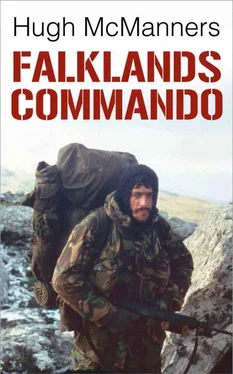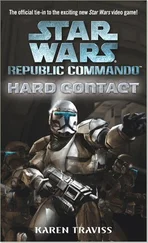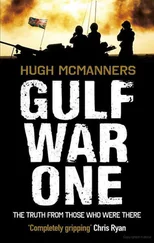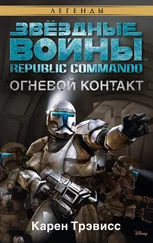Hugh McManners - Falklands Commando
Здесь есть возможность читать онлайн «Hugh McManners - Falklands Commando» весь текст электронной книги совершенно бесплатно (целиком полную версию без сокращений). В некоторых случаях можно слушать аудио, скачать через торрент в формате fb2 и присутствует краткое содержание. Город: London, Год выпуска: 2014, ISBN: 2014, Издательство: Nightstrike Publishing, Жанр: nonf_military, Биографии и Мемуары, на английском языке. Описание произведения, (предисловие) а так же отзывы посетителей доступны на портале библиотеки ЛибКат.
- Название:Falklands Commando
- Автор:
- Издательство:Nightstrike Publishing
- Жанр:
- Год:2014
- Город:London
- ISBN:978-0-992-81540-0
- Рейтинг книги:4 / 5. Голосов: 1
-
Избранное:Добавить в избранное
- Отзывы:
-
Ваша оценка:
- 80
- 1
- 2
- 3
- 4
- 5
Falklands Commando: краткое содержание, описание и аннотация
Предлагаем к чтению аннотацию, описание, краткое содержание или предисловие (зависит от того, что написал сам автор книги «Falklands Commando»). Если вы не нашли необходимую информацию о книге — напишите в комментариях, мы постараемся отыскать её.
Falklands Commando — читать онлайн бесплатно полную книгу (весь текст) целиком
Ниже представлен текст книги, разбитый по страницам. Система сохранения места последней прочитанной страницы, позволяет с удобством читать онлайн бесплатно книгу «Falklands Commando», без необходимости каждый раз заново искать на чём Вы остановились. Поставьте закладку, и сможете в любой момент перейти на страницу, на которой закончили чтение.
Интервал:
Закладка:
This is the 2014 e-book edition of a book that was first published in 1992.
Since then, British troops have seen peace-keeping and peace enforcement operations in the former Yugoslavian Republic, a brief war during the invasion of Iraq, and then multi-tour counter-terrorist campaigns in Iraq and Afghanistan.
Afghanistan has been the British and US Army’s sole focus for over a decade. It does not involve the General War operations for which armies normally train, but limited war counter terrorist operations. Combat there never involves incoming artillery or bombing strikes, and although fire fights can be intense, the norm is boring, uncomfortable, tense patrolling carrying light equipment. The main danger is from improvised bombs – IEDs, and then ambush. There are similarities with the Northern Ireland campaign.
I’m re-publishing this book as the British Army changes from its previous Afghanistan focus, back once more to preparing for General War. Most of the soldiers in today’s army have spent their entire careers carrying out operations that are very much less in intensity than general war. Some of today’s soldiers, particularly in the infantry, have extensive combat experience. But the nature of counter-terrorist operations has given them what senior officers are calling an ‘FOB mentality’. This stems from assuming that they will always be working out of a secure forward operating base, where they return to recharge radio batteries, get more ammunition, food and water, and sleep. As in the Vietnam War, whenever possible, air strikes are used, with no fear of air strikes or artillery in return. Battles are rarely at greater than platoon strength.
Whereas General War – as in the Second World War, Korea, the Arab-Israeli wars and the Falklands – is not like this. The Scars of War explores the realities of General War in terms of the psychology of modern professional soldiers.
The original editions of The Scars of War became required reading for students at the Army Staff College, Camberley. I therefore very much hope this e-book version will help my fellow soldiers in their relearning of hard-won lessons, as they get themselves back onto a General War footing. They have gained excellent light infantry combat experience from Afghanistan which will help them; as Northern Ireland experience helped us when we were sent down south in 1982 to re-invade the Falklands.
And I most fervently hope it will help them also to avoid slipping into the disgraceful pretence that was the British Army of the Rhine in the 1980s and 90s (and almost certainly earlier), in its pointless but enormously expensive deterrence of a Soviet invasion of Europe. Real armies deter by preparing to fight. Over the forty years since the end of the Second World War, the British Army seemed to forget this essential truth, and was only able to muster two operational brigades out of its entire strength, which needed four months preparation before being able to help oust Saddam Hussein from Kuwait in 1992.
The individuals who appear throughout this book are telling stories that many others in the Falklands and other wars could equally have told. After their experience of combat, some left the armed forces, while others continued in their military careers and were still serving when I interviewed them. I have not attempted, in editing their accounts, to select only the highlights of what they had to say, but have included most of the memories and impressions that they felt were significant.
This is important, because through having in some respects been deliberately non-selective about the men I interviewed and the material I then included in this book, I have been able to create what I hope is an accurate impression of what the modern battlefield is really like. Mostly it is boring, uncomfortable and very worrying.
There is, however, one common denominator shared by all my interviewees: they are thinking men, deeply affected by what they went through, with the intelligence, perception and humility to dig back into their broom cupboard of painful memories. For those from the Falklands War, their interviews took place around nine years afterwards. All my interviewees had deliberately suppressed all but a few happier memories of the war, and so it took considerable courage for them to speak honestly about what really happened.
These interviews were difficult, particularly at the start of each one. As a combat veteran myself, however, I was able to ask the right questions, and avoid the stupid ones – and an abrupt closing of shutters. I was also able to identify and challenge when, on a very few occasions, I was spun a yarn, or when something unpleasant was glossed over.
Each interview was a journey to a foreign land and another time, a harsh, hostile place with strange, absolute rules, where people behaved very differently. Some of the memories bubbled up like marsh gas, with a smell that made you realise this was a swamp. At the end, however, there was a feeling of relief, and remarks like ‘You are the first person I’ve ever said any of this to’; ‘Not even my wife knows what I’ve just told you’; and ‘I feel a lot better, like having got something off my chest at last’.
Catharsis was also one of my motives in writing this book. I am deeply grateful to each of my interviewees for having been so frank.
I was completing this book in the shadow of the Gulf War, after Iraq had invaded Kuwait. In the long preamble and build-up to the Allied land attack, Iraq’s President Saddam Hussein threatened to use chemical and biological weapons, predicting it would be the ‘mother of all battles’. During this period of fear and intense preparation, I wanted to get on record the reality of modern warfare and its effect on combatants – the reality that most civilians never consider.
Apart from the very small number of military personnel who have personally experienced combat, nobody has the faintest idea of what it is actually like – and why should they? This almost total ignorance gives rise to many unfortunate attitudes during and after wars, epitomised by newspaper headlines like ‘Gotcha!’ (after the Falklands War sinking of the Argentine battle cruiser General Belgrano ) or ‘Up Yours Galtieri’; or, at the other extreme, by the Synod of the Church of England agonising over the morality of the Gulf War at the same time as British soldiers were sweating it out in their anti-chemical suits. The attitudes and debates at home are often so far removed from the reality of the battlefield as to make soldiers feel isolated and even bitter.
Media coverage of the Gulf War made most of us back at home angry at its incredible waste – of life, technology and money. And as the exact same has occurred in subsequent wars – to date, Bosnia, Kosovo, Afghanistan, operations in East Timor and the invasion of Iraq – we may expect to be angered by the same sense of waste in all future wars, not to mention the hours, stretching into days and weeks, of being glued to radio and television sets.
The money spent on military operations in Afghanistan was so mind-bendingly enormous that it could have re-started the exploration of space. Imagine if by now, we humans had a space station capable of launching manned flights to Mars or for setting up a Moon base, with all the accompanying technological advancements? Also, money could have been spent developing Afghanistan’s infrastructure to the point where its warlords became business men? A fraction of the astronomical sums of military spending could have made them all very rich…
Gulf War One was a similarly frustrating and wasteful episode. By its unseemly, anticlimactic, botched ending, people were fed up with it, and many even in the 1992 were cynical about its aims and result. Although the USA, enjoying victory after decades of military disappointment, welcomed her soldiers home with a defiant, ticker-tape celebration, in Britain, troops and electorate alike were uneasy about the triumph, unwilling to revel in its dubious glory. The same uneasy cynicism has accompanied the highly dubious reasons for the Iraq invasion. Once our troops are all safely withdrawn from Afghanistan, we can expect a similar questioning of motives, methodologies and outcome.
Читать дальшеИнтервал:
Закладка:
Похожие книги на «Falklands Commando»
Представляем Вашему вниманию похожие книги на «Falklands Commando» списком для выбора. Мы отобрали схожую по названию и смыслу литературу в надежде предоставить читателям больше вариантов отыскать новые, интересные, ещё непрочитанные произведения.
Обсуждение, отзывы о книге «Falklands Commando» и просто собственные мнения читателей. Оставьте ваши комментарии, напишите, что Вы думаете о произведении, его смысле или главных героях. Укажите что конкретно понравилось, а что нет, и почему Вы так считаете.












